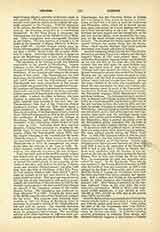

Legipont, OLIVER, Benedictine, bibliographer, b. at Soiron, Limburg, December 2, 1698; d. at Trier, January 16 1758. Having received his early education from the Franciscans at Verviers he proceeded for higher studies to Cologne, where he entered the abbey of Great St. Martin, received the priesthood on May 22, 1723, and the degree of Licentiate in 1728. His life was practically a succession of journeys to the numerous libraries, which he was commissioned to examine and put in order. Though zealous in the sacred ministry, he had little opportunity of exercising it; nor did he devote much time to teaching, though he was instrumental in promoting the higher studies in his order by the erection of a Benedictine college in the University of Heidelberg. Most of his writings remain unedited, but among the printed works his edition of Magnoald Ziegelbauer‘s “Historia rei litterarias ord. Sti. Benedicti” (1754-), “Monasticum Moguntiacum” (Prague, 1746), “Dissertationes philologico-bibliographicae” (Nuremberg, 1747), “Itinerarium peregrinationis nobilis” (Augsburg, 1751; the same also in Spanish, Valencia, 1759) have lasting value.
BENEDICT ZIMMERMAN

